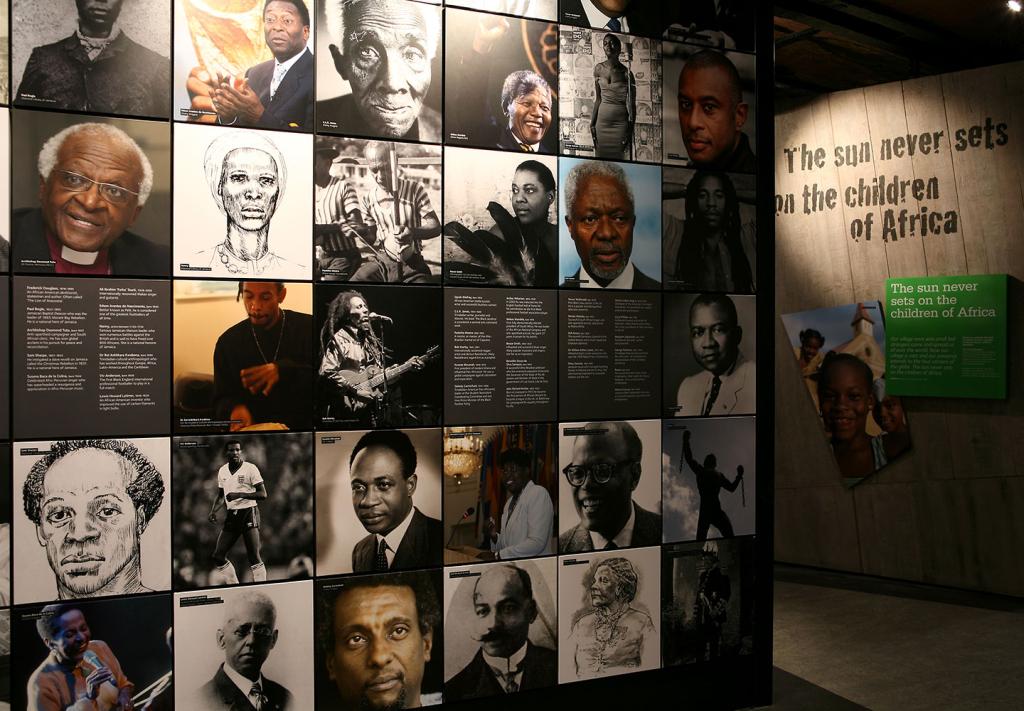Black History Month - A time to be heard

We live in an incredibly polarised society, and in one sense, the world’s become a simplistic place - black or white, good or bad, left or right? But, the reality is far more complicated than that. Our collective history is far more complicated than that.
Black History Month was first celebrated in the UK in the late 1980s - a time of conflict and social uprising. If you take the Toxteth uprising in Liverpool as just one example, there was a need to get a message out there, a message that there was such a thing as British Black History.
Fast forward 33 years, and I would love to say we now live in a society where we no longer need this month, where the achievements and contributions of British Black people to British society is simply part of British history.
But, we don’t live in a perfect world.
There are still some people who view Britishness, and what it means to be ‘pure British stock’ as something that equates to a white society, which is part of a broader white history. Black History Month really challenges and dispels these dangerous preconceived ideas. It is a portal to understanding that our history is in fact a global story, which is mixed and diverse.
For me, one of the most interesting and important things about this month is that gives smaller and less diverse parts of the country an opportunity to engage with Black heritage and culture.
Unfortunately, there is no such thing as Black History in the National Curriculum that’s mandatory. Not every student in this country learns about the Bristol Bus Boycott, or the Toxteth Uprising, or the Transatlantic Slave Trade. Learning and understanding can depend on a number of factors: from what school you go to, to your family and your own interests. So, we all have different levels of understanding on the subject, that’s just how it is. But understanding is everything, especially in our current climate.
I’ve heard lots of people say that the Black Lives Matter movement is just a fad, or it’s become fashionable to focus on Black Lives Matter. But this group of activists are just highlighting something many pioneers have been fighting for since the so-called emancipation in 1860s America. It’s about having equal rights for people of African descent. It’s a modern manifestation of a very old form of activism, but if you don’t know the full history, then you’re not going to join the dots.
Black History Month, through events and discussion is a powerful way to help contextualise current issues. Why does somebody want to topple a statue of an old white guy in Bristol? Well, you’ve got to put flesh on the bones. Who was he? What did he do? What does he mean to the people of Bristol? If you don’t know the whole story, you might just think these people are just anarchists throwing someone in a river. It’s a simple way of dealing with a complicated subject. But you have to dig deeper and look at why this boring statue in the middle of Bristol is so important, why it is so powerful.
Education is key and Black History Month is a starting point, not an end point. The month is becoming more and more prominent; it’s on social media, it’s in the newspapers, it’s on TV, and that can only be a good thing. Because if you know nothing about the culture or heritage or history, it’s very hard for you not to be able to find something out.
But, before we can have discussions about whether this month is needed, we all need to start at the same point. Learning about Black History should be compulsory in school. Everyone should go to a museum that focuses on aspects of Black history; parents and family members should be given the correct tools to teach and learn about our collective history.
Until then, all we have is Black History Month.
